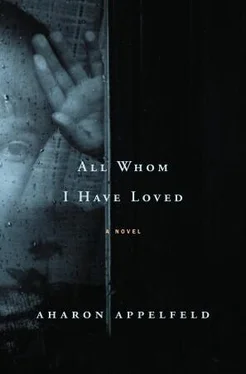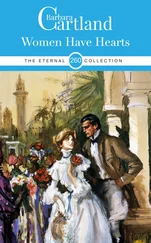“I thought perhaps we would travel to the city.”
“What do we need the city for? The city destroys all hope.”
“Hope.” I tried to probe this familiar word, which suddenly sounded suspect to me.
“How else would you say it?” wondered Mother. This sentence was also something I recalled, but I didn't remember when it had been said.
Then I stopped talking and Mother prepared sandwiches. Her thin sandwiches, with yellow or white cheese. Mother's sandwiches had a fresh taste that they retained for hours.
“Why don't you ask me what I've been doing all this time?” I asked.
“I know everything.”
“How?”
“I'm with you, even when you don't see me.”
“So you know Victor?” I wanted to test her.
“Of course I know him. Victor was with me at the teachers' seminary. He was an outstanding pupil. But he didn't want to be a teacher; he was drawn to art.”
“Strange.”
“Why strange? He was always short and round and very generous.”
After the meal we went down to the dark lake. The trees at the dark lake are always low and dense, protecting you on all sides, and we swam without clothes. Mother was taller without clothes, perhaps because she gathered up her hair. It was unusual for her to dive under the water and stay under so long. I was scared and shouted, “Mother!” Hearing my shout, she surfaced and floated.
When she came out of the water I started to ask her whether she had married André. Mother made a dismissive gesture with her hand, as if to say, “Let's not talk about it.” But I couldn't hold back and I asked her anyway. Her face darkened and she said, “Why do you ask?” Her question, or, more accurately, her rebuke, was so sharp that it left me mute. She immediately added, “And suppose I did marry, is that a reason to lash me with knotted whips or banish me forever?”
I was shocked by what she said. “I love you, Mother.”
“I hope so,” she said suspiciously.
“Why do you say ‘I hope so’?”
“What should I say?”
I didn't know how to respond, so I was silent.
“If I've been mistaken, do forgive me,” said Mother in an affected tone of voice, which immediately saddened me.
We didn't speak the entire way home. Once inside, Mother took off her shoes and put them in the corner. Then she threw herself onto the bed and covered her face with her hands. I knew that I hadn't behaved well toward her, and yet my heart still did not let me go over to her. I stood in the doorway and watched her. The more I looked at her, the more I knew that she had been meaning to say something to me, but would not tell it to me now.
I woke up as the train came to a sudden halt, and I saw Father standing next to me. When he saw that I was awake, he knelt down and hugged me, as if he hadn't seen me for a long time.
Toward morning we reached Czernowitz, and we hurried straight to the café that Father loved, the Alaska. The proprietor gave us a warm welcome, calling out, “How come you disappeared on us, my dear fellow?”
“I've been in exile.”
“Where in exile — if one might ask?”
“Everywhere outside Czernowitz is exile.”
“If that's so, then you've been redeemed and you deserve a good breakfast.”
And the breakfast came soon enough: toast, fried eggs, and cream cheese, to say nothing of the fragrant, hot coffee. The proprietor sat next to us, and Father told him about Bucharest, about the exhibit, and about the anti-Semites who had the city in their grip, casting terror in the streets and the cafés.
“Not that they're lacking here.”
“But here they're quieter.”
“That's what you think.”
“In Bucharest they're swarming in every corner.”
“And what did the art critics say?”
“Those critics are short and fat, and they are really asking for a good thrashing.”
The owner burst out laughing and said, “Arthur is Arthur, and neither place nor time will change him.”
After the meal, we went downtown to the Herrengasse. It was a bright, chilly day. Father was in good spirits. He unbuttoned his coat and walked about the cold streets as if it were spring. People were glad to see him and hugged him. I saw from close up how much Father loved his hometown, its people, and its language. Here, unlike in Bucharest, he was a native son; here everyone knew him by name and liked him.
At noon we entered the church refectory and ate corn pie with cream. Here, too, Father was greeted with gladness. People sang and cheered for Jesus, who promised redemption to all the faithful. Father gazed at those singing with great intensity, as if trying to engrave them onto his heart.
Then the venerable old man came in, supported by two young people, and silence fell upon the hall. He began by blessing those seated, praying that Jesus should dwell among them, that their eyes should see only good, and that they should judge all creatures favorably, for only on account of favorable judgment does the world exist. I liked the phrase “judging favorably,” and I asked Father what it meant. Father put a finger to his lips, signaling silence.
The venerable man also talked about the poor, the downtrodden, and the sick, whom Jesus loves, saying that all those who help them support Him. Treat the poor well, for they shall bring redemption, the old man concluded, and then everyone stamped their feet.
After the meal I thought that we'd return to the railway station and travel to Mother in Storozynetz, but we didn't. Father met old friends and was glad to see them, and they convinced him to enter the tavern for a toast. Father yielded to temptation and went in.
At the tavern Father spoke at length about art and art critics, about the dealers' and gallery owners' monopoly, and about the dreadful taste of petite bourgeois Jews, who decorate their homes with sentimental works of art. He went on and on, and you could see that this was a place where he found a ready ear and where everyone respected him. Toward evening he got to his feet and said, “My dear friends, I must set out for Storozynetz.”
“There's time; there's a night train.” They sought to keep him there.
I was tired and fell asleep on the bench. When I awoke it was already night. Everyone was talking animatedly. Father stared at me suddenly and said, “My poor boy! Dragged around from pillar to post with his strange father and no corner to call his own. Let's take him straight to a hotel.” He rose from his seat, pulled himself away from the gathering, and immediately set out with me for the hotel.
The owner of the hotel entered us in his registration book and told the bellhop to take our bags up to our room. It was a nice room, but it wasn't luxurious like our palace in Bucharest.
Father, it seemed, had drunk one glass too many. He spoke of things I didn't understand, and in the throes of his drunkenness, he swore that if an anti-Semite crossed his path, he would beat him without mercy. He also tossed out the name of some art critic whom he had mentioned before, but this time in a very direct and threatening way. Once I was afraid of Father's drunkenness, but now I wasn't. I knew that he'd eventually fall onto the bed, fold up his legs, and fall asleep.
Sometimes Father would wake up and call to me or one of his friends. I would hear but not answer — that's what he did at night and I wasn't frightened. Since we'd been together I'd come to know him well, from up close. Father was tall and strong, and sometimes I saw him in a dream, standing in a ring and boxing.
The following day we again did not rush to set out. Father was late getting up, and at noon we ate at the church refectory. After the meal we walked along the Prut. It was clear that Father loved the river and was happy to be near it. The entire way he hummed and spoke and argued, and eventually he turned to me and said, “Isn't it beautiful here?”
Читать дальше












